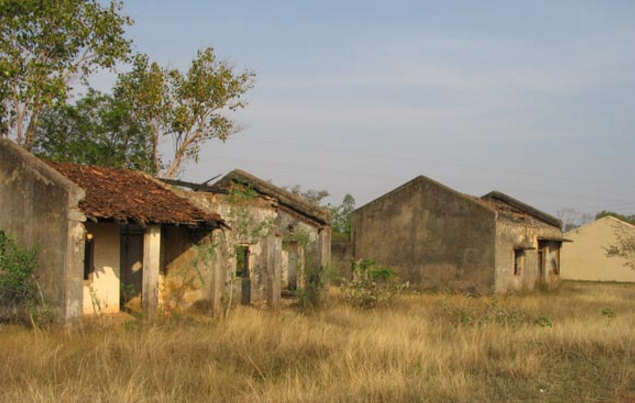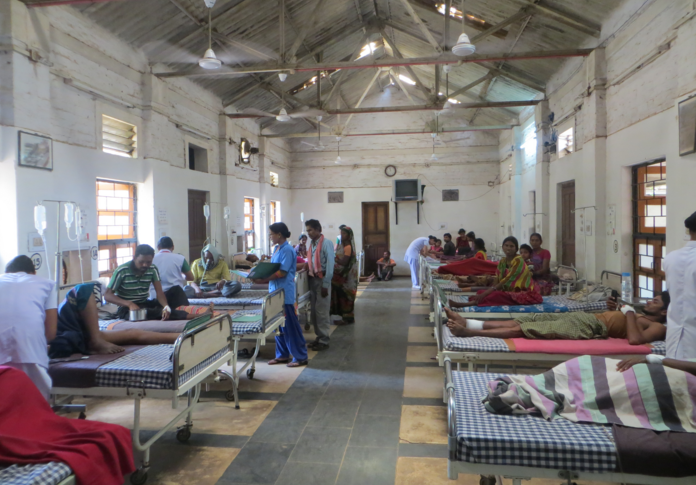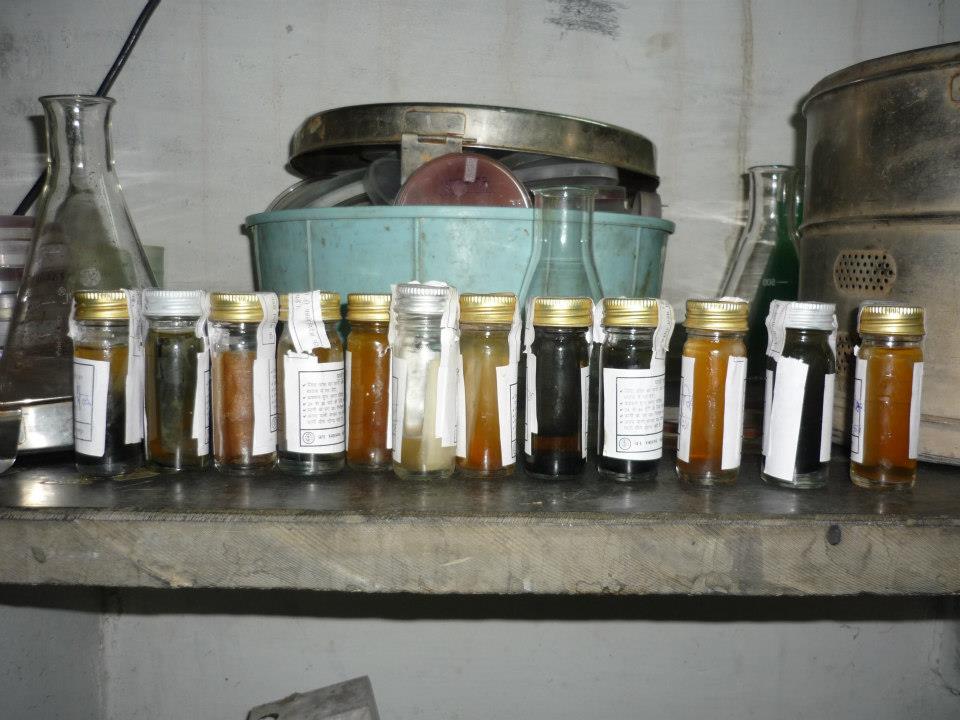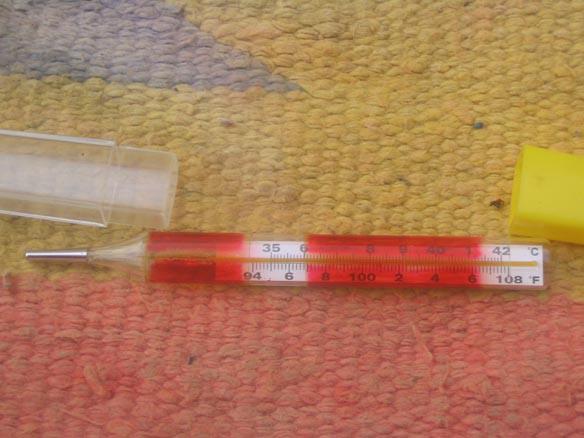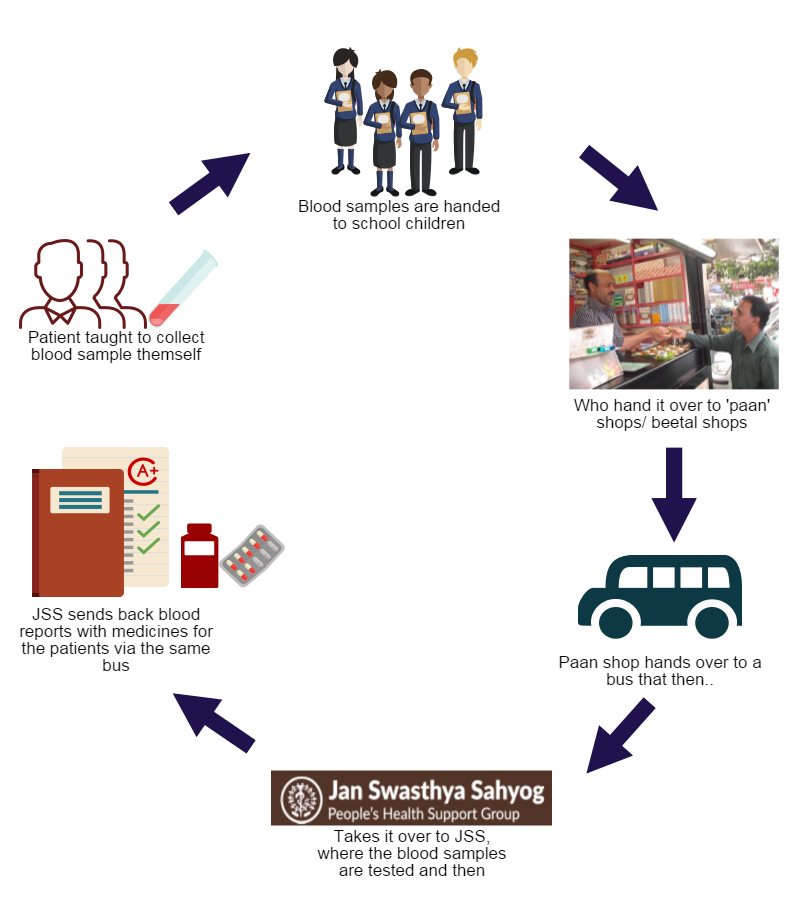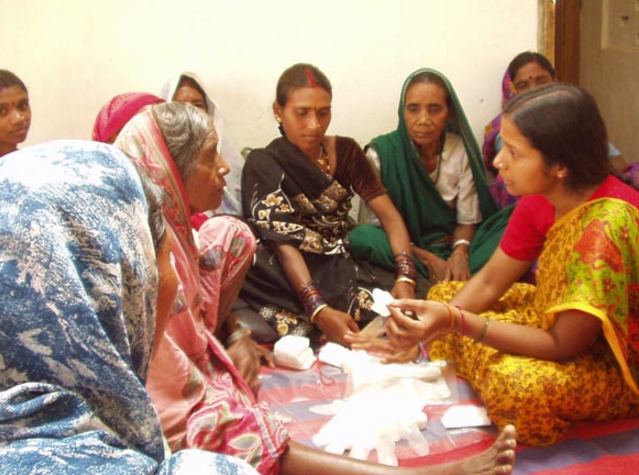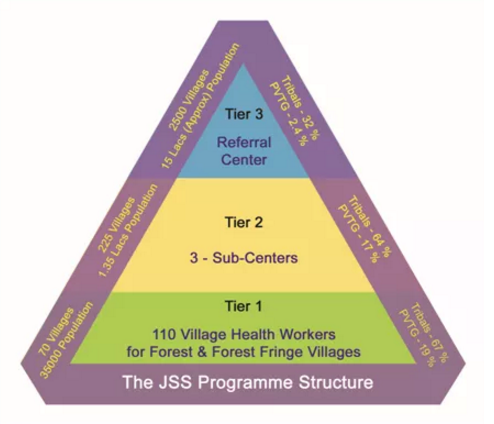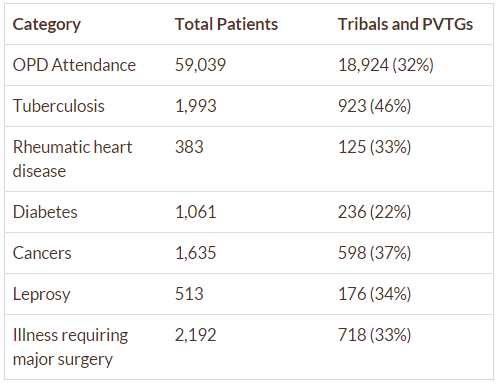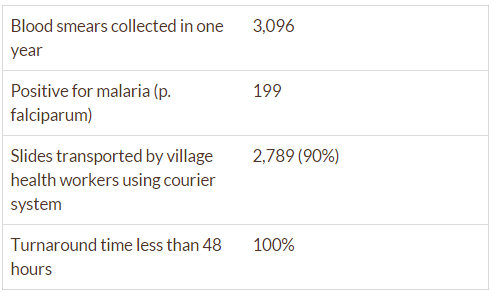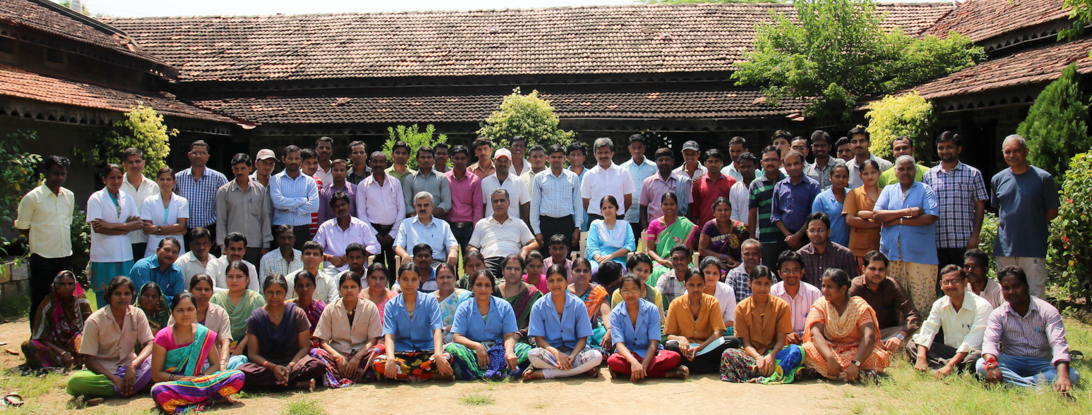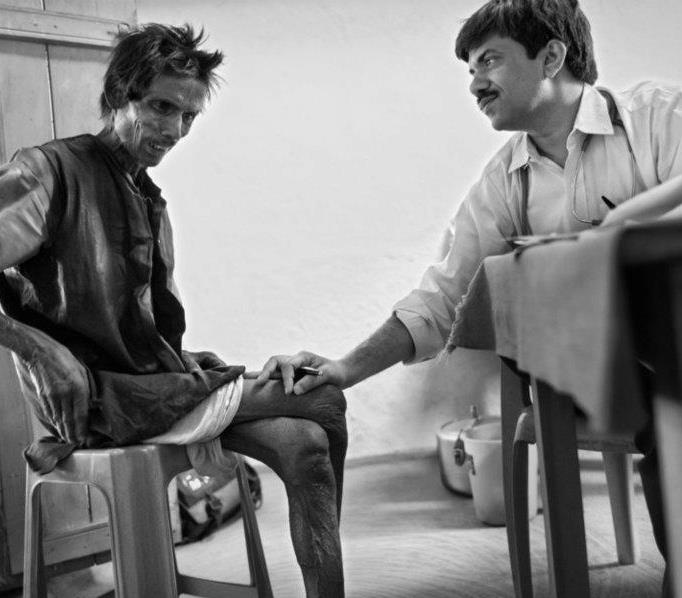
Jan Swasthya Sahyog – Ex-AIIMS alumni run an amazing rural healthcare management system in Chhattisgarh that goes beyond healthcare!
The Jan Swasthya Sahyog (JSS) evolved as a brainchild of a group of eight doctors from AIIMS who left Delhi to bring affordable healthcare to Chhattisgarh in 1997. JSS located in Bilaspur was setup in 1997 with a vision that comes from an inscription on a pillar outside the Rashtrapati Bhawan that reads, “In thought faith, in deed courage, in life service.”
The NGO’s mission is – “To develop a low-cost and effective health program that provides both preventive and curative services in the tribal and rural areas of Bilaspur and surrounding areas of Chhattisgarh in central India. Strongly believe that access to healthcare should not be denied to anyone due to lack of money or due to discrimination on account of caste, sex, religion and social class etc.”
Back in 1997, the JSS campus looked something like this –
Since then it has come a long way, clearly visible in how the JSS facility looks today –
Pediatrician Dr. Yogesh Jain states the use of “appropriate technology” as being the key to reaching the poorest of the poor in the state. The idea being to reach out and solve problems via innovation, technology, science and ideas. For example: JSS’ initial challenges came from diarrohea outbreaks in the villages due to contaminated water.
The idea was then developed that wherever JSS had its health workers, they would have small glass bottles with white tissues inside which have bacterial feeds. The water has to be collected in the bottle and carried close to the body of a person for a day, in the folds of a saree or a dress, with the heat enabling incubation. If there is bacteria is in the water, it will feed and the white paper will turn black. In one day, people will know if the water is contaminated.
Another innovation the medical team has come up with is the colour changing thermometer, by taking out the white strip inside the thermometer, and colour-code it. White is for normal and red for high temperature. It then becomes easy to understand for anybody using it. What is ideally needed is that people learn these techniques from JSS and implement them wherever they are.
So this was about innovations made by JSS, what about real time on field solutions like – blood samples for patients affected in far off villages? Sushil Patel a coordinator at JSS reveals the solution, “The process that has been evolved is that patients collect blood samples for themselves, and give them to school children who hand it over to owners of pan shops on their way to school. They then hand it over to bus drivers who bring it to Ganiyari in the morning. We test them by the evening, and if found positive, send the reports with pouches of medicines by the same bus that travels back in the evening.” A quick look at the process –
Not just Medical Care
JSS deals with 350 patients a day and close to 50,000 patients each year. Yet, it doesn’t dabble in just rural healthcare but a 360 degree approach and provides-community health initiatives, hospital services, training , phulwari (creches), appropriate technology (developed for rural settings), research , advocacy initiatives and even sustainable agriculture. Effectively uplifting the entire Bilaspur community towards a sustainable lifestyle model that ensures healthy living day on day, not just when one gets sick.
The JSS handles its community health programme via this structured method –
For such volume and rural presence it is driven by results. A look at the stats show the exceptional efficiency and standards maintained by JSS in patient care –
As seen before JSS has done a tremendous job in reducing the treatment with the ‘courier system’
In addition to this, JSS is having a direct impact on the health of those living in rural Bilaspur. One example of this impact is in maternal and child health. Over the years, child survival has steadily improved in the programme villages. The infant mortality rate has been reduced from 86 / 1000 live births to the current 29.5 / 1000 live births, which is significantly lower than the current rate of 59/1000 live births for rural Chhattisgarh (SRS Bulletin, October 2009, Rural IMR). This has been achieved through sustained efforts in various aspects of maternal and child health.
JSS is supported by the central and state governments. In addition to this institutions like AIIMS, CMC Vellore, St. John’s Medical College, private trusts like Tata Trust and OXIFAM. PSB and PSU’s like the State Bank of India (SBI) and Bharat Aluminum Ltd. Company (BALCO) also contribute towards running such a large enterprise. Numerous volunteers, support institutions and staff are also to a critical factor in the organizations success.
JSS aims to impact not only the lives of the individual patients in rural Bilaspur, but the lives of poor and marginalized peoples living in remote settings throughout India. Continous understanding of patients’ needs and experiences at Ganiyari help advocate for the health needs of all those living with similar conditions.
It is remarkable to see such a wonderful effort being taken by the JSS team (pictured above) to take the Bilaspur and uplift an entire rural community. As seen in our previous blog post on GVK EMRI, the JSS team is also a ‘game changer’ in making ‘better doctors’ perform innovative actions to cater to rural India’s healthcare needs.
Enjoyed reading this post ? We have clinical cases, active medical discussions, journal updates and medico-legal articles on our FREE App DAILY ROUNDS for both iOs and Android. Join a community of 100,000+ doctors and become ‘a better doctor’ TODAY !
With excerpts from- Indian Express
Image Credits: JSS, Tom Pietrasik
